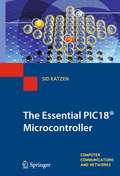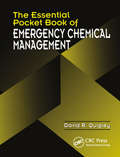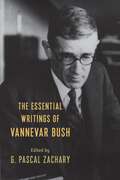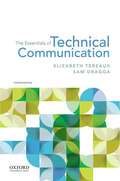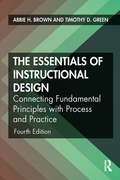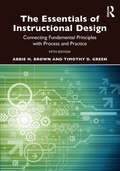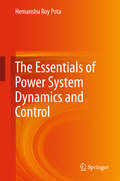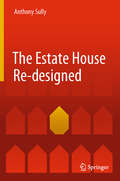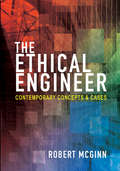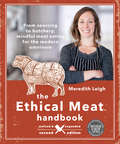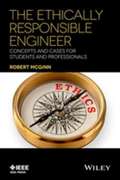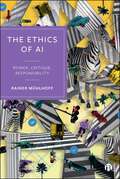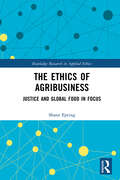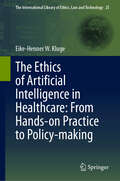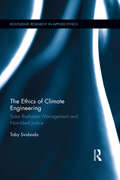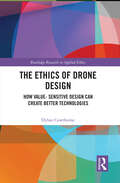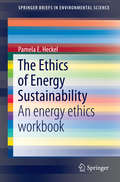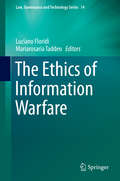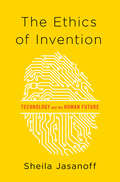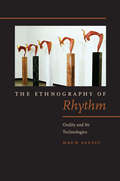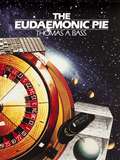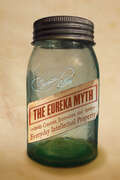- Table View
- List View
The Essential PIC18® Microcontroller
by Sid KatzenMicroprocessors are the key component of the infrastructure of our 21st-century electronic- and digital information-based society. More than four billion are sold each year for use in 'intelligent' electronic devices; ranging from smart egg-timer through to aircraft management systems. Most of these processor devices appear in the form of highly-integrated microcontrollers, which comprize a core microprocessor together with memory and analog/digital peripheral ports. By using simple cores, these single-chip computers are the cost- and size-effective means of adding the brains to previous dumb widgets; such as the credit card. Using the same winning format as the successful Springer guide, The Quintessential PIC® Microcontroller, this down-to-earth new textbook/guide has been completely rewritten based on the more powerful PIC18 enhanced-range Microchip MCU family. Throughout the book, commercial hardware and software products are used to illustrate the material, as readers are provided real-world in-depth guidance on the design, construction and programming of small, embedded microcontroller-based systems. Suitable for stand-alone usage, the text does not require a prerequisite deep understanding of digital systems. Topics and features: uses an in-depth bottom-up approach to the topic of microcontroller design using the Microchip enhanced-range PIC18® microcontroller family as the exemplar; includes fully worked examples and self-assessment questions, with additional support material available on an associated website; provides a standalone module on foundation topics in digital, logic and computer architecture for microcontroller engineering; discusses the hardware aspects of interfacing and interrupt handling, with an emphasis on the integration of hardware and software; covers parallel and serial input/output, timing, analog, and EEPROM data-handling techniques; presents a practical build-and-program case study, as well as illustrating simple testing strategies. This useful text/reference book will be of great value to industrial engineers, hobbyists and people in academia. Students of Electronic Engineering and Computer Science, at both undergraduate and postgraduate level, will also find this an ideal textbook, with many helpful learning tools. Dr. Sid Katzen is Associate to the School of Engineering, University of Ulster at Jordanstown, Northern Ireland.
The Essential Pocket Book of Emergency Chemical Management
by David R. QuigleySave time - and maybe a life - with The Essential Pocket Book of Emergency Chemical Management. This detailed, no-nonsense guide contains all the information first responders need to quickly and effectively manage a chemical spill or leak. It efficiently presents information in an easy-to-use table format throughout two sections.
The Essential Writings of Vannevar Bush
by Vannevar BushThe influence of Vannevar Bush on the history and institutions of twentieth-century American science and technology is staggeringly vast. As a leading figure in the creation of the National Science Foundation, the organizer of the Manhattan Project, and an adviser to Presidents Roosevelt and Truman during and after World War II, he played an indispensable role in the mobilization of scientific innovation for a changing world. A polymath, Bush was a cofounder of Raytheon, a pioneer of computing technology, and a visionary who foresaw the personal computer and might have coined the term “web.”Edited by Bush’s biographer, G. Pascal Zachary, this collection presents more than fifty of Bush’s most important works across four decades. His subjects are as varied as his professional pursuits. Here are his thoughts on the management of innovation, the politics of science, research and national security, technology in public life, and the relationship of scientific advancement to human flourishing. It includes his landmark introduction to Science, the Endless Frontier, the blueprint for how government should support research and development, and much more. The works are as illuminating as they are prescient, from considerations of civil-military relations and the perils of the nuclear arms race to future encyclopedias and information overload, the Apollo program, and computing and consciousness. Together, these pieces reveal Bush as a major figure in the history of science, computerization, and technological development and a prophet of the information age.
The Essentials Of Technical Communication
by Elizabeth Tebeaux Sam DraggaIn today's complex workplace, no one wants to read what you write. The Essentials of Technical Communication, Fourth Edition, was developed with this principle in mind. The respected author team continues to provide students with accessible and comprehensive instructions for planning, drafting, and revising technical documents that are clear and concise. Visit the book's free, open-access Companion Website at www.oup.com/us/tebeaux for additional student and instructor resources.
The Essentials of Instructional Design: Connecting Fundamental Principles with Process and Practice
by Timothy D. Green Abbie H. BrownThe Essentials of Instructional Design, 4th Edition, introduces the fundamental elements, principles, and practice of instructional design (ID) to students new to ID. Key procedures within the ID process—learner analysis, task analysis, needs analysis, developing goals and objectives, organizing instruction, developing instructional activities, assessing learner achievement, and evaluating the success of the instructional design—are covered comprehensively and enriched with descriptions and examples of how these procedures are accomplished using the best-known models. Unlike most other ID books, The Essentials of Instructional Design provides an overview of the principles and practice of ID without placing emphasis on any one ID model. Offering the voices of instructional designers from a number of professional settings and providing real-life examples from across sectors, students learn how professional organizations put the various ID processes into practice. This revised edition features new activities, quizzes, and content on professional development. Offering a variety of possible approaches for each step in the ID process and clearly explaining the strengths and challenges associated with each, this book prepares students with the information they need to make informed decisions as they design and develop instruction.
The Essentials of Instructional Design: Connecting Fundamental Principles with Process and Practice
by Timothy D. Green Abbie H. Brown• Provides an overview of the principles and practice of Instructional Design without placing emphasis on any one ID model. • Introduces the essential elements of instructional design to students who are new to ID or need a refresher while in training or professional practice. • Revised and updated to include new references, definitions, technologies, instructional formats, design approaches, and more while retaining the structure and contents of the previous edition.
The Essentials of Power System Dynamics and Control
by Hemanshu Roy PotaThis book presents a general framework for modelling power system devices to develop complete electromechanical models for synchronous machines, induction machines, and power electronic devices. It also presents linear system analysis tools that are specific to power systems and which are not generally taught in undergraduate linear system courses. Lastly, the book covers the application of the models, analysis and tools to the design of automatic voltage controllers and power system stabilisers, both for single-machine-infinite-bus systems and multi-machine interconnected systems.In most textbooks modelling, dynamic analysis, and control are closely linked to the computation methods used for analysis and design. In contrast, this book separates the essential principles and the computational methods used for power system dynamics and control. The clear distinction between principles and methods makes the potentially daunting task of designing controllers for power systems much easier to approach.A rich set of exercises is also included, and represents an integral part of the book. Students can immediately apply—using any computational tool or software—the essential principles discussed here to practical problems, helping them master the essentials.
The Estate House Re-designed
by Anthony SullyThe book demonstrates how new houses can be designed to be more sustainable and ergonomic. Specifically, it describes a prototype building that could be constructed in the near future. Responding to some of the poor standards of mass estate housing in the UK and its out-of-date space standards, it contributes towards improving the current status quo by describing a house design, including drawings, that can compete with today’s mass housing. The author examines the traditional geometrical reliance on the square in the design of houses and the planning of housing estates and promotes instead the adoption of polygonal forms. This is explained using geometric analysis, diagrams and references to existing housing. These concepts have been developed with reference to technical literature from various companies with one company interested in taking it further. Providing a novel and up-to-date design concept, this book is of value to practitioners and researchers looking to improve the standard of mass housing in the UK. It is also of interest to anyone wishing to build their own house and to manufacturers wanting to move into modern housing technology.
The Ethical Engineer: Contemporary Concepts And Cases
by Robert McGinnAn exploration of the ethics of practical engineering through analyses of eighteen rich case studiesThe Ethical Engineer explores ethical issues that arise in engineering practice, from technology transfer to privacy protection to whistle-blowing. Presenting key ethics concepts and real-life examples of engineering work, Robert McGinn illuminates the ethical dimension of engineering practice and helps students and professionals determine engineers’ context-specific ethical responsibilities.McGinn highlights the “ethics gap” in contemporary engineering—the disconnect between the meager exposure to ethical issues in engineering education and the ethical challenges frequently faced by engineers. He elaborates four “fundamental ethical responsibilities of engineers” (FEREs) and uses them to shed light on the ethical dimensions of diverse case studies, including ones from emerging engineering fields. The cases range from the Union Carbide pesticide plant disaster in India to the Google Street View project. After examining the extent to which the actions of engineers in the cases align with the FEREs, McGinn recapitulates key ideas used in analyzing the cases and spells out the main lessons they suggest. He identifies technical, social, and personal factors that induce or press engineers to engage in misconduct and discusses organizational, legal, and individual resources available to those interested in ethically responsible engineering practice.Combining probing analysis and nuanced ethical evaluation of engineering conduct in its social and technical contexts, The Ethical Engineer will be invaluable to engineering students and professionals.Meets the need for engineering-related ethics studyElaborates four fundamental ethical responsibilities of engineersDiscusses diverse, global cases of ethical issues in established and emerging engineering fieldsIdentifies resources and options for ethically responsible engineering practiceProvides discussion questions for each case
The Ethical Meat Handbook: From Sourcing To Butchery, Mindful Meat Eating For The Modern Omnivore (Mother Earth News Books for Wiser Living)
by Meredith Leigh“Leigh will teach you how to raise animals, butcher them, and cook and cure their meat. Even better, she explains what it means and why it matters.” —Mark Essig, author of Lesser BeastsNutrition, environmental impact, ethics, sustainability—it seems like there’s no end to the food factors we must consider. At the center of the dietary storm is animal-based agriculture. Was your beef factory farmed or pasture-raised? Did your chicken free range, or was it raised in a battery cage? Have you, in short, met your meat?Most efforts to unravel the complexities of the production and consumption of animals tend to pit meat eaters and vegetarians against each other.In this second edition of The Ethical Meat Handbook, Meredith Leigh argues that by assuming responsibility for the food on our fork and the route by which it gets there, animals can be an optimal source of food, fiber, and environmental management. This new edition covers:Integrating animals into your garden or homesteadStep-by-step color photos for beef, pork, lamb, and poultry butchery100+ recipes for whole-animal cookingCulinary highlights: preparing difficult cuts, sauces, and extrasCharcuterie, including history, general science, principles, and tooling upThe economics and parameters for responsible meat productionEating diversely may be the most revolutionary action we can take to ensure the sustainability of our food system. The Ethical Meat Handbook, 2nd Edition challenges us to take a hard look at our dietary choices, increase self-reliance, and enjoy delicious food that benefits our health and our planet.“A powerful, positive book about a powerful, positive alternative, engaging us in shaping a new food and agriculture narrative.” —Jean-Martin Fortier, author of The Market Gardener
The Ethically Responsible Engineer: Concepts and Cases for Students and Professionals
by Robert McginnThe book lays out and discusses four Fundamental Ethical Responsibilities of Engineers (FEREs) that are incumbent of engineers. It also shows how the FEREs can be applied to particular engineering situations to determine specific "derivative ethical responsibilities" that are incumbent on engineers in those situations Includes a variety of case studies in various fields of engineering that are divided into four parts: salient factual background, ethical issues, analysis of ethical issues, and moral lessons Grasp ethical issues in real-life situations The author is a professor of Management Science and Engineering and Science, Technology, and Society (STS) at Stanford University
The Ethics of AI: Power, Critique, Responsibility
by Rainer MühlhoffAvailable open access digitally under CC-BY-NC-ND licence. In a world where artificial intelligence increasingly influences the fabric of our daily lives, this accessible book offers a critical examination of AI and its deep entanglement with power structures. Rather than focusing on doomsday scenarios, it emphasises how AI impacts our everyday interactions and social norms in ways that fundamentally reshape society. By examining the different forms of exploitation and manipulation in the relationship between humans and AI, the book advocates for collective responsibility, better regulation and systemic change. This is a resounding manifesto for rethinking AI ethics through a power-aware lens. With detailed analysis of real-world examples and technological insights, it is essential reading for anyone invested in the future of AI policy, scholarly critique and societal integration.
The Ethics of Agribusiness: Justice and Global Food in Focus (Routledge Research in Applied Ethics)
by Shane EptingThis book offers an original perspective on food supply chains. It argues that the ability to trade food on a global scale could be intrinsically good aside from any instrumental value that people gain from it. While the author’s argument seems to counter wholesale anti-agribusiness views, it is consistent with the larger goals of food-justice movements. The author examines the structures of food supply chains, revealing the kinds of harm they help produce. They include slavery, abusive labor, geopolitical exploitation, ecological degradation, and public health impacts. Although the book argues that food supply chains can be collectively beneficial, eliminating their immoral features must hold steady as a continuous enterprise. Securing this outcome means that we go beyond critique. The final chapter advocates for the sustainable food label to address issues of food justice and food sovereignty. The Ethics of Agribusiness will interest researchers and advanced students working in food ethics, environmental ethics, and agricultural ethics.
The Ethics of Artificial Intelligence in Healthcare: From Hands-on Practice to Policy-making (The International Library of Ethics, Law and Technology #25)
by Eike-Henner W. KlugeThis book provides an ethical analysis of the ethical issues that arise in the design, nature and use of AIs as they are currently used in the delivery and planning of healthcare by hands-on healthcare professionals, institutional administrators and social policy makers. It suggests that while these issues overlap, they have distinct aspects in the respective domains. Among other things, it distinguishing between AIs as expert systems as they are currently constituted and AIs as based in quantum computers or as constituted of bio-printed material, indicates how this is evolving and outlines the ethically relevant issues that would then arise.
The Ethics of Climate Engineering: Solar Radiation Management and Non-Ideal Justice (Routledge Research in Applied Ethics)
by Toby SvobodaThis book analyzes major ethical issues surrounding the use of climate engineering, particularly solar radiation management (SRM) techniques, which have the potential to reduce some risks of anthropogenic climate change but also carry their own risks of harm and injustice. The book argues that we should approach the ethics of climate engineering via "non-ideal theory," which investigates what justice requires given the fact that many parties have failed to comply with their duty to mitigate greenhouse gas emissions. Specifically, it argues that climate justice should be approached comparatively, evaluating the relative justice or injustice of feasible policies under conditions that are likely to hold within relevant timeframes. Likely near-future conditions include "pessimistic scenarios," in which no available option avoids serious ethical problems. The book contends that certain uses of SRM can be ethically defensible in some pessimistic scenarios. This is the first book devoted to the many ethical issues surrounding climate engineering.
The Ethics of Drone Design: How Value-Sensitive Design Can Create Better Technologies (Routledge Research in Applied Ethics)
by Dylan CawthorneThis book presents a holistic approach to the design and use of drones. It argues that this powerful technology requires high levels of ethical analysis and responsibility – our moral progress must keep pace with our technological progress. Drone technologies support and diminish the flourishing of certain human values, impact power relations between individuals and groups, and add an additional element to the complex network of humans and objects in modern society. The book begins by introducing four prototype drones designed and built by the author: the healthcare drone, the search and rescue drone, the educational drone, and the spiritual drone. These drones have been developed using a value-sensitive design approach – with values such as human welfare, privacy, trust, environmental sustainability, and justice at the forefront. Ethical analyses and social impacts are taken as design inputs, leading to the creation of better, more responsible drone designs. The book then showcases additional methods used to develop the prototype drones from the fields of engineering, ethics, and art, including ethical frameworks, ethics standards, capability caution, and speculative design. The holistic approach reveals a more subtle and nuanced view of drones than the currently polarized characterization of "the good drone" or "the killer drone". The book concludes with recommendations for drone engineers, companies, lawmakers, and citizens on how to support ethics in drone design. The Ethics of Drone Design is an essential resource for scholars, advanced students, engineers, and designers interested in the ethics of technology.
The Ethics of Drone Design: How Value-Sensitive Design Can Create Better Technologies (Routledge Research in Applied Ethics)
by Dylan CawthorneThis book presents a holistic approach to the design and use of drones. It argues that this powerful technology requires high levels of ethical analysis and responsibility – our moral progress must keep pace with our technological progress. Drone technologies support and diminish the flourishing of certain human values, impact power relations between individuals and groups, and add an additional element to the complex network of humans and objects in modern society. The book begins by introducing four prototype drones designed and built by the author: the healthcare drone, the search and rescue drone, the educational drone, and the spiritual drone. These drones have been developed using a value-sensitive design approach – with values such as human welfare, privacy, trust, environmental sustainability, and justice at the forefront. Ethical analyses and social impacts are taken as design inputs, leading to the creation of better, more responsible drone designs. The book then showcases additional methods used to develop the prototype drones from the fields of engineering, ethics, and art, including ethical frameworks, ethics standards, capability caution, and speculative design. The holistic approach reveals a more subtle and nuanced view of drones than the currently polarized characterization of "the good drone" or "the killer drone". The book concludes with recommendations for drone engineers, companies, lawmakers, and citizens on how to support ethics in drone design. The Ethics of Drone Design is an essential resource for scholars, advanced students, engineers, and designers interested in the ethics of technology.
The Ethics of Energy Sustainability
by Pamela E. HeckelThis book is an easy to use instructional aide. Explore sustainability issues in contemporary society through a transdisciplinary approach. Chapters include ethics, public resources, public policy, combustion, heat exchangers, nuclear, solar, water, and wind energy. A short summary is presented for each topic, followed by additional topics for research, assignments, and references. The complex assignments require students to grow in their professional judgment.
The Ethics of Information Warfare
by Luciano Floridi Mariarosaria TaddeoThis book offers an overview of the ethical problems posed by Information Warfare, and of the different approaches and methods used to solve them, in order to provide the reader with a better grasp of the ethical conundrums posed by this new form of warfare. The volume is divided into three parts, each comprising four chapters. The first part focuses on issues pertaining to the concept of Information Warfare and the clarifications that need to be made in order to address its ethical implications. The second part collects contributions focusing on Just War Theory and its application to the case of Information Warfare. The third part adopts alternative approaches to Just War Theory for analysing the ethical implications of this phenomenon. Finally, an afterword by Neelie Kroes - Vice President of the European Commission and European Digital Agenda Commissioner - concludes the volume. Her contribution describes the interests and commitments of the European Digital Agenda with respect to research for the development and deployment of robots in various circumstances, including warfare.
The Ethics of Insurgency
by Michael L. GrossAs insurgencies rage, a burning question remains: how should insurgents fight technologically superior state armies? Commentators rarely ask this question because the catchphrase 'we fight by the rules, but they don't' is nearly axiomatic. But truly, are all forms of guerrilla warfare equally reprehensible? Can we think cogently about just guerrilla warfare? May guerrilla tactics such as laying improvised explosive devices (IEDs), assassinating informers, using human shields, seizing prisoners of war, conducting cyber strikes against civilians, manipulating the media, looting resources, or using nonviolence to provoke violence prove acceptable under the changing norms of contemporary warfare? The short answer is 'yes', but modern guerrilla warfare requires a great deal of qualification, explanation, and argumentation before it joins the repertoire of acceptable military behavior. Not all insurgents fight justly, but guerrilla tactics and strategies are also not always the heinous practices that state powers often portray them to be.
The Ethics of Invention: Technology and the Human Future
by Sheila JasanoffWe live in a world increasingly governed by technology--but to what end? Technology rules us as much as laws do. It shapes the legal, social, and ethical environments in which we act. Every time we cross a street, drive a car, or go to the doctor, we submit to the silent power of technology. Yet, much of the time, the influence of technology on our lives goes unchallenged by citizens and our elected representatives. In The Ethics of Invention, renowned scholar Sheila Jasanoff dissects the ways in which we delegate power to technological systems and asks how we might regain control. Our embrace of novel technological pathways, Jasanoff shows, leads to a complex interplay among technology, ethics, and human rights. Inventions like pesticides or GMOs can reduce hunger but can also cause unexpected harm to people and the environment. Often, as in the case of CFCs creating a hole in the ozone layer, it takes decades before we even realize that any damage has been done. Advances in biotechnology, from GMOs to gene editing, have given us tools to tinker with life itself, leading some to worry that human dignity and even human nature are under threat. But despite many reasons for caution, we continue to march heedlessly into ethically troubled waters. As Jasanoff ranges across these and other themes, she challenges the common assumption that technology is an apolitical and amoral force. Technology, she masterfully demonstrates, can warp the meaning of democracy and citizenship unless we carefully consider how to direct its power rather than let ourselves be shaped by it. The Ethics of Invention makes a bold argument for a future in which societies work together--in open, democratic dialogue--to debate not only the perils but even more the promises of technology.
The Ethics of Nuclear Energy
by Sabine Roeser Taebi, Behnam and Roeser, Sabine Behnam TaebiDespite the nuclear accident at the Fukushima Daiichi plant in Japan, a growing number of countries are interested in expanding or introducing nuclear energy. However, nuclear energy production and nuclear waste disposal give rise to pressing ethical questions that society needs to face. This book takes up this challenge with essays by an international team of scholars focusing on the key issues of risk, justice, and democracy. The essays consider a range of ethical issues, including radiological protection, the influence of gender in the acceptability of nuclear risk, and environmental, international, and intergenerational justice in the context of nuclear energy. They also address the question of when, and under which conditions, nuclear energy should play a role in the world's future supply of electricity, looking at both developing and industrialized countries. The book will interest readers in ethics and political philosophy, social and political sciences, nuclear engineering, and policy studies.
The Ethnography of Rhythm: Orality and Its Technologies (Verbal Arts: Studies in Poetics)
by Haun SaussyWinner of the Modern Language Association's Aldo and Jeanne Scaglione Prize for Comparative Literary StudiesWho speaks? The author as producer, the contingency of the text, intertextuality, the “device”—core ideas of modern literary theory—were all pioneered in the shadow of oral literature. Authorless, loosely dated, and variable, oral texts have always posed a challenge to critical interpretation. When it began to be thought that culturally significant texts—starting with Homer and the Bible—had emerged from an oral tradition, assumptions on how to read these texts were greatly perturbed. Through readings that range from ancient Greece, Rome, and China to the Cold War imaginary, The Ethnography of Rhythm situates the study of oral traditions in the contentious space of nineteenth- and twentieth-century thinking about language, mind, and culture. It also demonstrates the role of technologies in framing this category of poetic creation. By making possible a new understanding of Maussian “techniques of the body” as belonging to the domain of Derridean “arche-writing,” Haun Saussy shows how oral tradition is a means of inscription in its own right, rather than an antecedent made obsolete by the written word or other media and data-storage devices.
The Eudaemonic Pie
by Thomas A. BassA classic story about beating roulette with the world's first wearable computers. "A veritable piñata of a book," said The New York Times, which ranges from the invention of personal computers through the history of gambling to breaking the bank in Las Vegas. "Bass has done the best job so far of capturing the marriage of technical imagination and communal coziness that gave rise to Silicon Valley," said the Los Angeles Times. "An extraordinary story," said Nature. "Behind the fun and games there lies an economic parable for the decade just passed." A madcap adventure and insanely comedic, this is "an astonishing and fascinating tale of scientific heroism," said Richard Dawkins.
The Eureka Myth: Creators, Innovators, and Everyday Intellectual Property
by Jessica SilbeyAre innovation and creativity helped or hindered by our intellectual property laws? In the two hundred plus years since the Constitution enshrined protections for those who create and innovate, we're still debating the merits of IP laws and whether or not they actually work as intended. Artists, scientists, businesses, and the lawyers who serve them, as well as the Americans who benefit from their creations all still wonder: what facilitates innovation and creativity in our digital age? And what role, if any, do our intellectual property laws play in the growth of innovation and creativity in the United States? Incentivizing the "progress of science and the useful arts" has been the goal of intellectual property law since our constitutional beginnings. The Eureka Myth cuts through the current debates and goes straight to the source: the artists and innovators themselves. Silbey makes sense of the intersections between intellectual property law and creative and innovative activity by centering on the stories told by artists, scientists, their employers, lawyers and managers, describing how and why they create and innovate and whether or how IP law plays a role in their activities. Their employers, business partners, managers, and lawyers also describe their role in facilitating the creative and innovative work. Silbey's connections and distinctions made between the stories and statutes serve to inform present and future innovative and creative communities. Breaking new ground in its examination of the U. S. economy and cultural identity, The Eureka Myth draws out new and surprising conclusions about the sometimes misinterpreted relationships between creativity and intellectual property protections.
